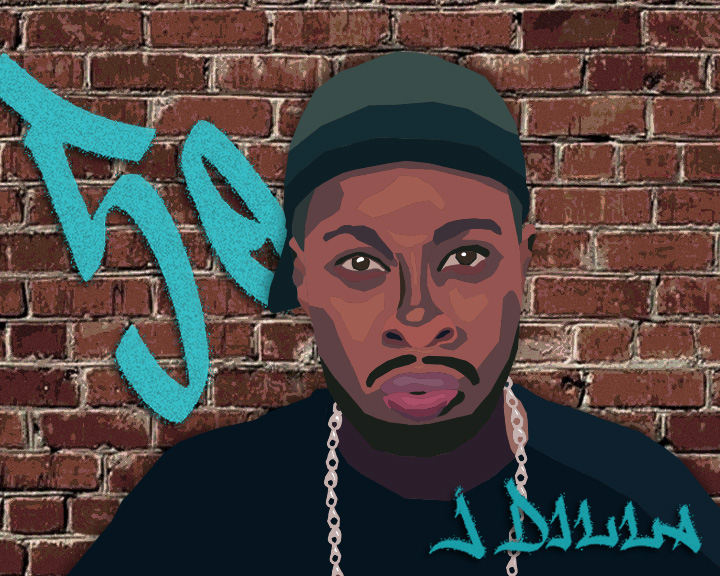Few musicians can lay claim to a spot on hip-hop’s Mount Rushmore. In a genre that prioritizes fluidity and introspection, it seems nearly impossible to subjectively elevate an artist to an icon. However, the late J Dilla deserves canonization.
J Dilla, born James Dewitt Yancey, was a man of many talents. During his career, he was tabbed as a producer, drummer, rapper and songwriter. Before his unfortunate death in 2006, the artist gained a respectable following and boasted co-signs from around the music industry. Now, on the 50th anniversary of his birth, J Dilla’s legacy has blossomed into something bigger than he could have possibly imagined.
Born on Feb. 7, 1974, Yancey was surrounded by musicians in his childhood home; his mother was a former opera singer and his father was a jazz bassist. During his high school years, he took his first foray into hip-hop via rap battles with future collaborators, T3 and Baatin. During this time, Yancey simultaneously explored the world of music production and experimented with various instruments. It was then that he learned how to use the Akai MPC, a musical workstation that combined the capabilities of drum machines and samplers for efficient beat making.
With his childhood friends T3 and Baatin, Yancey, then under the name Jay Dee, formed the rap group Slum Village in 1996. The trio recorded numerous projects, earning recognition for their braggadocious lyrics laid over Dilla’s artfully crafted beats. Thanks to the success of the group, Yancey was recruited to produce for some of the biggest musicians at the end of the century. Highlights include work on Q-Tip’s album “Amplified,” The Pharcyde’s “Labcabincalifornia,” Erykah Badu’s “Mama’s Gun” and Common’s “Like Water For Chocolate.”
By 2001, Yancey had decided to transition into a solo career. On a slew of different labels, he released extended plays and full length albums, showcasing both his sensational rap and production abilities. His career shift also prompted a name change: to coincide with the release of his debut album “Welcome 2 Detroit,” Yancey changed his stage name from Jay Dee to J Dilla.
In the early 21st century, J Dilla saw increased recognition around the music industry, but health problems arose that would ultimately cut his life short. He would battle the rare blood disorder thrombotic thrombocytopenic purpura, which forced him to remain hospitalized from time to time. While his creative output slowed, J Dilla refused to retire. Pitchfork heralded his collaborative album “Champion Sound” with producer Madlib as “one of the most exciting and inventive hip-hop productions [of 2003].”
As Yancey’s condition declined, he devoted a considerable amount of time toward what would eventually become his last project released in his lifetime. “Donuts,” an album widely claimed to be one of the greatest hip-hop releases ever, was a triumph. It further legitimized sampling as an art form, masterfully weaving source material from multiple decades together into a tapestry of sonic emotion. Then, just three days later, James Dewitt Yancey succumbed to his illness at the age of 32.
In the years following his passing, J Dilla’s commercial work has been rereleased and his archival tracks have been unearthed and disseminated online. This reevaluation has led many to claim he is one of the greatest producers of all time. Dilla’s innovative work on his drum machine popularized many production techniques, including unquantized drums, which contributed to a more human-like feel for listeners. His knack for sample choice and chopping ensured that the records he repurposed would be done a great justice. Countless hip-hop artists have heard a track of his and felt inspired to hone their craft. Questlove, drummer for The Roots and a J Dilla collaborator, told writer Matt Brennan in the book, “Kick It: A Social History of the Drum Kit”, that he “invented the sound we call neo-soul.”
Although J Dilla has departed, his legacy will undoubtedly outlive us all.




Leave a Comment